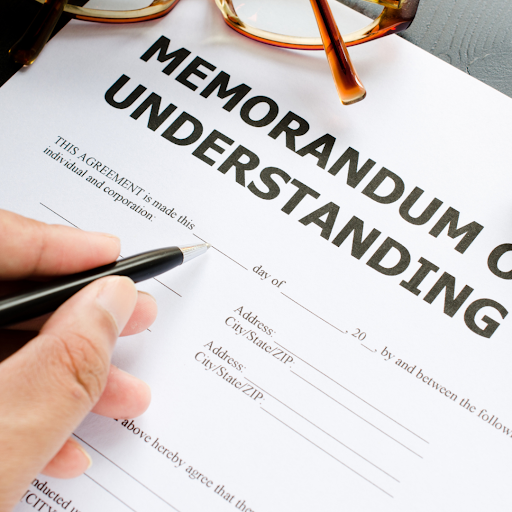In the process of working through the particulars of a partnership, joint venture, or any other significant deal, businesses in Singapore frequently require a method to document the terms that have been agreed upon during the course of contract negotiations. At this point, a Memorandum of Understanding (MOU) presents itself as an extremely helpful document. In order to ensure that all parties are on the same page prior to the signing of the final contract, it serves as a useful tool that provides an outline of the most important points and agreements that were reached along the way.
The Importance of a Memorandum of Understanding (MOU) and Intentions Clarification: A memorandum of understanding (MOU) demonstrates that both parties are prepared to negotiate a contract.
In the process of “Setting the Groundwork,” a roadmap is created for the discussions, which includes the establishment of a timeline and key terms in order to maintain order and ensure that everything stays on track.
In the process of establishing boundaries: For the most part, memorandums of understanding (MOUs) are not legally binding; however, they frequently contain legally binding clauses, such as non-compete or confidentiality agreements, which are essential for the protection of sensitive information.
When Is It Appropriate to Make Use of an MOU?
In more complicated negotiations, such as those involving joint ventures or partnerships, memorandums of understanding (MOUs) come in especially handy. You want to avoid renegotiating the same terms over and over again, and they are an excellent choice for situations like these.
Clauses requiring non-compete agreements and confidentiality are essential for the protection of confidential information.
In order to direct the conversations in the direction of a conclusive agreement, a structured framework is required.
A memorandum of understanding (MOU) should contain the following key elements
- Who’s Involved: Include the names and contact information of all parties involved.
Indicate the length of time that the MOU will be in effect after it has been signed.
The purpose of the memorandum of understanding (MOU) should be made crystal clear.
- Main Terms: Provide an overview of the most important aspects and terms that you anticipate being included in the final contract.
For the purpose of moving forward with the final agreement, it is important to take note of any prerequisites or actions that are required.
- Binding Clauses: Include specific provisions such as non-compete and non-disclosure clauses in the contract.
- Signatures: Make sure that the document has been formally signed off on by all of the parties involved.
Are memorandums of understanding legally binding?
In most cases, non-binding conditions: As a general rule, memorandums of understanding (MOUs) in Singapore are not legally binding and serve more as a guide toward the completion of a contract.
However, certain clauses, such as non-compete agreements and confidentiality clauses, have the potential to be legally binding depending on the circumstances.
The potential for legal enforceability is as follows: An MOU may be considered legally binding by the courts in Singapore in certain circumstances, depending on the manner in which it is written and the intentions of the parties involved.
Some Remarks Before Closing
In Singapore, a memorandum of understanding (MOU) is a useful instrument for formalizing the negotiation process. While allowing for some degree of flexibility, it lays out a clear path toward reaching a final agreement. If you want to make sure that your memorandum of understanding (MOU) is effective and in line with your goals, particularly when it comes to clauses that require confidentiality or non-compete, it is a good idea to consult with a lawyer. By doing so, you can rest assured that your interests will be safeguarded and that the MOU will fulfill its intended purpose.




